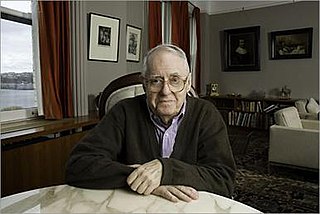A Quote by Baruch Spinoza
When a man is prey to his emotions, he is not his own master.
Related Quotes
The real master is only a presence. He has no intentions of being a master. His presence is his teaching. His love is his message. Every gesture of his hand is pointing to the moon. And this whole thing is not being done, it is a happening. The master is not a doer. He has learned the greatest secret of life: let-go. The master has drowned his ego and the idea of separation from existence itself.
Man in his raw, natural state as he comes from the womb is morally and spiritually corrupt in disposition and character. Every part of his being-his mind, his will, his emotions, his affections, his conscience, his body-has been affected by sin (this is what is meant by the doctrine of total depravity)
All of man's ills are due to his lack of knowing God within him. The perfection of God's universe is founded upon its perfection of Balance. All of man's ills are caused by toxic poisons generated in his body through unbalance affecting his power of control over the functions of his electric body. Man, as an extension of God, is creator of his own electric body. He is master of his electric body to the extent of his knowing the Light of God in him. ... God says to man: »What I do, ye shall do«, but man is unbelieving for long ages.
Strange is the vigour in a brave man's soul. The strength of his spirit and his irresistible power, the greatness of his heart and the height of his condition, his mighty confidence and contempt of danger, his true security and repose in himself, his liberty to dare and do what he pleaseth, his alacrity in the midst of fears, his invincible temper, are advantages which make him master of fortune.
We are and remain such creeping Christians, because we look at ourselves and not at Christ; because we gaze at the marks of our own soiled feet, and the trail of our own defiled garments.... Each, putting his foot in the footprint of the Master, and so defacing it, turns to examine how far his neighbor’s footprint corresponds with that which he still calls the Master’s, although it is but his own.
The only distinction between freedom and slavery consists in this: In the former state a man is governed by the laws to which he has given his consent, either in person or by his representative; in the latter, he is governed by the will of another. In the one case, his life and property are his own; in the other, they depend upon the pleasure of his master. It is easy to discern which of these two states is preferable.








































